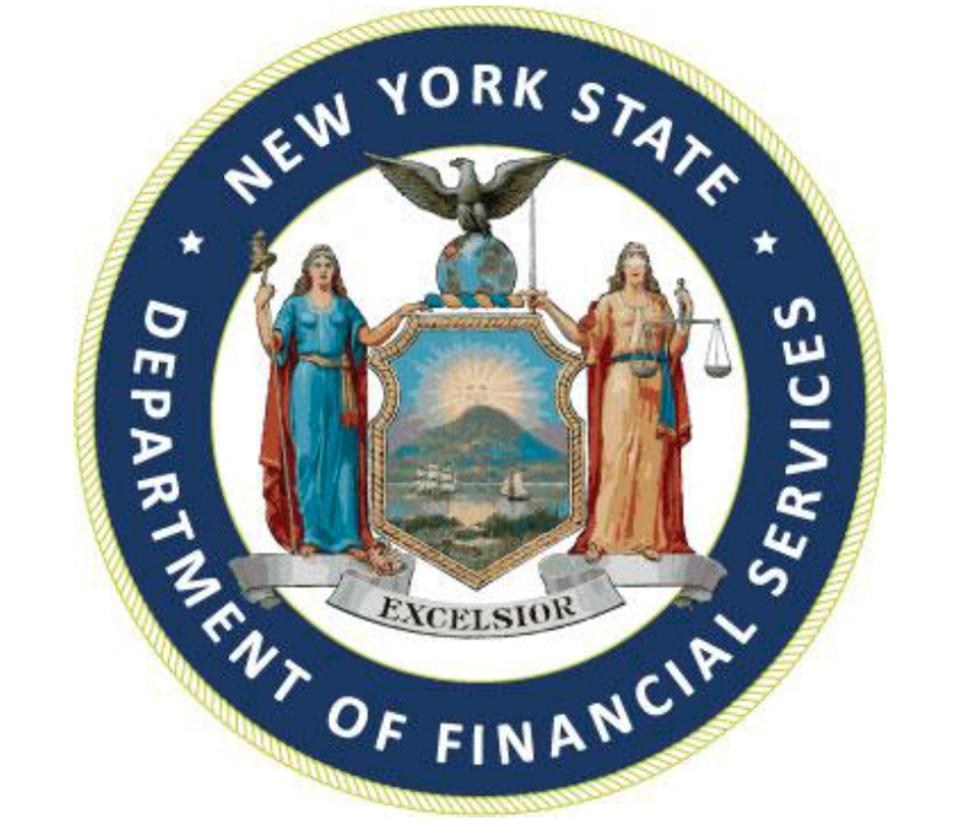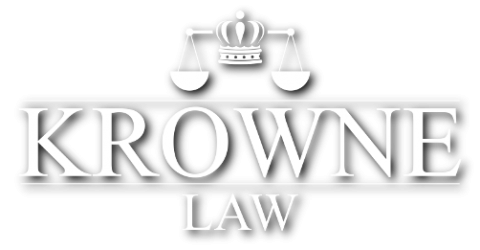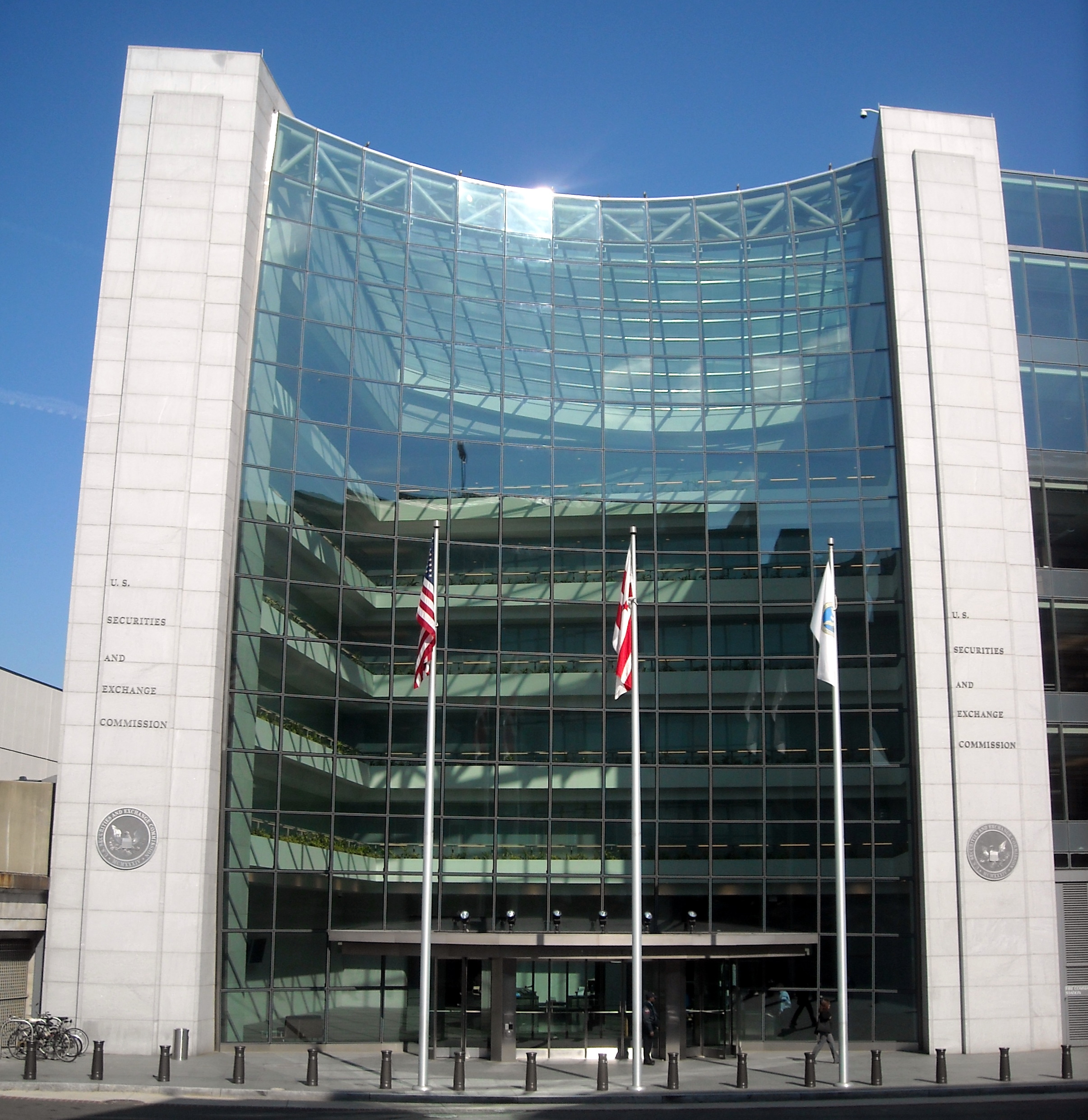
(*) Some of the biggest news of the past half-year on the US crypto regulatory front has been (1) Blockstack’s successful (qualified) “Reg A+” filing with the SEC and associated offering, and (2) the SEC’s lawsuit and injunction against Telegram, blocking distribution of their “Grams” tokens, sold pursuant to earlier “SAFTs” (Simple Agreements for Future Tokens, similar to SAFE notes). Surprisingly, the latter came even though Telegram had filed a Form D for ostensibly-exempt private, accredited investor-only sales of the Grams/SAFTs under Regulation D, Rule 506(c).
It seems to me that neither event — let alone comparative lessons of the two — has been fully appreciated by the crypto community. Thus, in this post, I wanted to highlight some main points of interest in each, and possible lessons in comparing and contrasting the two cases.
I. OVERVIEW OF “REG A+” AND BLOCKSTACK’S OFFERING
Blockstack was (in the US) a Regulation A (so-called “Reg A+”, since being expanded with the 2012 JOBS Act reforms) offering in the US which was qualified (“approved”) by the SEC on July 10, 2019 (see the offering circular here; filing index here). Reg A+ allows for up to $50 million to be raised by an issuer per 12 months, not limited to accredited investors, in exchange for following somewhat scaled-back public company-like disclosures (thus, it is often called a “mini-IPO”).
In fact, a Reg A+ offering is, for most purposes, considered “registered” by the SEC (which will become key later in this post). This is in contrast to offering exemptions, like the popular “private offering” (accredited investor-only) through Regulation D – Rule 506(c) offering. Such exempt offerings are expressly not “registered”, and therefore, every subsequent transaction (i.e., resale) of the issued securities are presumed unlawful in the US, lacking any further exemption (or, simply, a registration, as in an IPO or Reg A+ filing).
This “all subsequent transactions presumed illegal” status is of course a heavy cross to bear, and many, many blockchain token issuers over the past few years (actual, and would-be; ICO and otherwise) have expended considerable resources (and incurred considerable brain damage) attempting to deal with this situation, and square it with their structure and plans (our clients, of course, have at least had some of their pain mitigated, and many have — in spite of the lack of bespoke regulations — had successful token raises).
Critically, this consideration has been front-and-center even for ostensible “utility token”-selling projects, because (1) “pre-sales” of utility tokens, or rights to them, prior to developing the promised network utility, are statutory sales of securities in the US under the Howey “investment contract” doctrine, and (2) even when network utility is created, it is almost never 100% clear if “sufficient utility” — not only in an absolute sense, but also relative to subjective purchaser (and SEC) expectations — has been established to mitigate any possibility of being deemed a security.
Add on top of that the fluid nature of blockchains and their coins/tokens globally, and the result is that a heck of a lot more ventures are worrying about US securities law than either their globally-facing posture or the nature of their blockchain tokens and networks might suggest.
Thus, a major blockchain token issuer that could “safely” permit general public token purchases and sales in the US (including resales) while still offering what is effectively a “utility token” would be a major breakthrough.
Enter Blockstack. They were the first Reg A+ blockchain token offering of any kind to get approved by the SEC, and, quite fascinatingly, this was for a de facto utility token — not a security token, as nearly all observers had expected for the first approved Reg A+ project. A security token would have been the “safe bet”. But Blockstack (by all appearances) apparently really believed in the underlying model they had originally-envisioned, centered around the utility of their “Stacks” token, and its free-flowing role as critical to their network and constituent ecosystem — so they pushed to maintain their offering notwithstanding the token not really resembling a classical “security” on its fundamentals.
Now, I say “de facto” utility token because, what a Reg A+ offering (as with any securities exemption or registration) is expressly for is a security instrument. Thus, technically, what Blockstack has done is file as a provisional security (in a “mini-IPO”), while fully-disclosing their plans to foster an evolution of the token to a pure “utility status” — at some indeterminate point in the future (implicitly, to the satisfaction of the SEC). Their pathway to do doing such is moving the network to a “sufficiently decentralized” status. (As far as a specific threshold condition, we don’t really know what “sufficiently decentralized” means in the SEC’s eyes in any precision yet — but Blockstack could very well be the first case wherein we find out. On a related note, we’ve also argued here that being “sufficiently decentralized” shouldn’t be the only way for a blockchain token to become a non-security).
This indeterminate timing of the expected utility token status plus provisional treatment of the token as a security in the US is likely pretty important to the SEC’s approval of the offering. Basically, Blockstack didn’t design their offering like a “ticking time bomb” — i.e., one which is (presumptively) a security now, but will “explode” at some specific point in the future (that is, explicitly circulate contrary to securities regulations) — leaving the lawful securities trade status of potentially millions of (US) transactions in question.
When (and if) the Stacks token is ever deemed a non-security in the US, there will have already been a legal general public trading market for it in the US — as that is precisely what Reg A+ establishes. In my read, this is the central concern of the SEC, much less so than whether the securities trading market infrastructure and associated panoply of compliance becomes redundant at some point in the future (because the token “is suddenly a utility token”).
Don’t get me wrong; it’s not as if Blockstack took a “no-brainer” option in undertaking a blockchain token offering this way — by their own recounting, they spent $5 million in legal and professional fees on getting this offering through (plus a 9-month review timeline — which likely doesn’t account for pre-filing lead-time during which internal discussions, legal and accounting advisory consultations, and informal interactions with the SEC were surely taking place). (For comparison, $1-2 million for a traditional IPO is typical, so this was not “cheap” by virtually any standard).
But it was still a watershed accomplishment, and it will likely dramatically lower the cost for subsequent Reg A+ blockchain token offerings (and simpler, plain-vanilla security token offerings, or STOs, will likely be even cheaper than offerings hewing closer to the Blockstack “model”).
Also, the offering did raise $23 million under Reg A+ (i.e., in the US), so it did “pay for itself”, and thus, was “rewarded” in the marketplace. (Further, Crunchbase reports Blockstack raised a total of $93.8 million in 10 rounds, at least some of which was likely from Regulation S “offshore” sales, and so would not be counted along with the Reg A+ raised amount).
II. OVERVIEW OF TELEGRAM’S OFFERING AND SEC ENFORCEMENT
Telegram, the popular messaging app, went another direction with their blockchain token offering. They did go to market well after the SEC’s July 2017 “DAO Report” (essentially warning the ICO sector that it was presumed-regulated, and that enforcement was coming). And like many projects, Telegram responded by going the path of performing their “pre-sale” of tokens (that is, their sale of presumptive utility tokens — but before the network and companion utility was developed) within the US in a manner meant to mollify the SEC, by (1) limiting the sales to accredited investors, (2) filing a Form D declaration pursuant to Regulation D Rule 506(c), and (3) requiring US purchasers (and to some extent, offshore purchasers) to agree to contractual resale restrictions and lock-ups for an initial period.
After this initial phase — specifically, upon a hard deadline of October 31, 2019 (if not postponed under certain conditions), Telegram was to deliver its “grams” tokens to all pre-sale investors and the general public, worldwide.
(A general note: Telegram — thanks to Regulation S of the Securities Act — was not generally restricted in pre-selling such token interests to non-US persons — and itself enjoys somewhat-limited SEC jurisdictional reach, given its status as a non-US company. But in many ways, it clearly entered into US SEC jurisdiction. I’ll touch on jurisdictional considerations again below).
By hopes, and at first-blush appearances, this plan was expected to insulate Telegram from charges of violating securities laws in the US with its pre-sale agreements — in particular, with respect to US purchasers of the SAFT interests (all of whom were limited to being accredited). But as you probably can guess if you’re aware of the SEC’s lawsuit and injunction against Telegram of DATE, things did not go quite as planned.
The SEC took extraordinary action against Telegram with its suit filed on October 11, 2019 (complaint here ; cited as “Complaint” hereunder), seeking a TRO to completely enjoin (halt) Telegram’s distribution of Grams tokens worldwide until the merits of the offering were adjudicated.
(As a point of procedural detail, the court technically never granted the SEC’s requested TRO; on October 21 , Telegram and the SEC agreed to a stipulation and consent order that Telegram would voluntarily not “not offer, sell, deliver, or distribute ‘Grams’ to any person or entity” until the conclusion of a Feb. 18 & 19 2020 court hearing in the case. I think it’s safe to assume that the SEC would have obtained the TRO even if it relied upon the unilateral power of the court — but perhaps not in time for the October 31st planned Grams distribution date. Telegram’s SAFT purchasers also agreed to voluntarily postpone the distribution of Grams until after this hearing — sidestepping both questions of whom, if anyone, could still receive Grams, as well as whether the postponement could be unilaterally invoked by Telegram.)
(Please note that in all of the below, I am relying upon the SEC’s complaint for a recounting of the facts; which may not precisely hold. Telegram has not yet filed a full answer which might dispute some material facts. However, if even most of the facts are accurate, I believe the analysis and comments below are still on-point).
The SEC’s suit, at its core, is based upon two key concerns, which (in my own terms) boil down to:
- the Grams token has virtually no way to be a full “utility token” by the October 31, 2019 delivery deadline, relative to how Grams was promoted and the offering was conducted (and probably also in any absolute sense; i.e., of meeting some basic threshold of utility); and
- Telegram promoted and positioned the offering in such a way as to encourage — if not effectively guarantee — that many purchasers would act as mere “underwriters” for the initial offering; i.e., quickly “flipping” the tokens for a transnational profit, rather than as an investment in the inherent value of the token.
Addressing the first, and (I’d say) threshold concern: Telegram seems to have badly fumbled in making a strong “utility token” case, in both their communications and actual steps taken. This left them “wide open” to the SEC’s charges. See, e.g.,:
- “Grams are not a currency because they have no realistic currency uses at this time” (Complaint, p. 14);
- “Telegram sold and will deliver Grams in amounts that far exceed any anticipated ‘use’ on the TON Blockchain. For example, all but three of the United States Grams Initial Purchasers bought more than 2.5 million Grams each. Nor did or will Telegram restrict sales only to individuals who would actually “use” Grams (Complaint, p. 14);
- “The Whitepaper .. contained a detailed list of projects and steps that Telegram and its principals would take to make TON a reality. This included describing at length Telegram’s plans for the TON Blockchain … [it] also described a long list of services that Telegram would develop to improve the functionality of Messenger and of the TON Blockchain after its launch, but that … Telegram had no reasonable prospect for completion in advance of the delivery of Grams.” (emphasis mine; Complaint, p. 18);
- “The Whitepaper spoke of potential future products and services that investors could use in connection with Grams, but also made clear that these products were not available at the time the Offering began and would not be available by the time Defendants delivered Grams to Initial Purchasers.” (emphasis mine; Complaint, p. 24);
- “Like other Offering Documents, the Primers made clear that that Telegram’s work would continue for some years after delivery of Grams on the new TON Blockchain and would remain critical for the foreseeable future. Both documents, for example, included a timeline specifying that the ‘[l]aunch of TON Services, TON Storage, and TON Proxy’ would occur in the year after the ‘[l]aunch of Telegram Wallet.’ The 2017 Primer explained that Telegram’s vision will not be ‘implemented and deployed’ until ‘2021,‘ and that even then ‘the continuous evolution of the TON Blockchain will be maintained by the TON Foundation.'” (emphasis mine, Complaint, p. 19; see also p. 24);
As we always reiterate around here, if you do one thing in pitching a utility token offering, don’t state that you won’t get the utility done by the time you distribute the tokens (at least, if its to, or within reach of US purchasers).
Also fairly damning, the SEC observed that far more money was raised than even Telegram itself claimed it needed to develop the blockchain per se, and indeed, Telegram was completely open about the fact that a very large portion of the money would go to other purposes, e.g.:
- that Telegram would spend a large chunk of the raise on the core (non-blockchain) Messenger app which already exists: “… the $1.7 billion raised in the Offering so far exceeds what Defendants project they will need to develop the TON Blockchain… Defendants stated in offering documents … that Telegram would spend $520 million—or one-third of the funds raised—on Messenger alone between 2019 and 2021.” (Complaint, p. 14);
- “The 2017 Primer described Telegram’s need for ‘about $620 million to support continuing organic user growth’ for Messenger … ” (Complaint, p. 16);
- “The 2018 Primer similarly explained that Telegram intends ‘to use the proceeds raised from the offering for the development of the TON Blockchain, for the continued development and maintenance of Telegram Messenger, and for general corporate purposes.'” (Complaint, pp. 16-17)
This represents a significant tactical error, as funds not going to bringing about the initial core “utility” of the constructed blockchain network and token must inherently be a part of some long-term, generalized investment.
(For what it’s worth, I do not place great weight on many of the other “common enterprise” — as well as reliance upon “managerial and entrepreneurial efforts” — points made by the SEC; just because a venture is clearly a common enterprise per se managed by an inside team, it doesn’t mean that a token-purchaser is not purchasing for the sheer utility of that instrument. This, and related points, are discussed further in this post. But the damage is clearly done with the above complaint points, most based upon express admissions of Telegram itself.)
Even assuming Telegram hadn’t made any of the missteps discussed above, it would still have a problem with respect to delivering grams tokens in an unrestricted, global public offering. This would be based upon the reality that even if they assert the token was at the time of public delivery a utility token, any doubt as to such (especially in the mind of the SEC) would mean they are potentially unlawfully issuing a security publicly. And if such is done globally, that means the US general public could be included (and, giving the regulators the benefit of the doubt, therein harmed).
As the SEC put it : “Defendants have committed to flood the U.S. capital markets with billions of Grams by October 31, 2019 … without filing a registration statement for the Grams as they are required to do under the Securities Act of 1933… [selling] billions of securities that will quickly come to rest in the hands of U.S. investors” (Complaint, pp. 1-2).
This is where it becomes apparent that having an exempt US offering of securities, i.e., which is a one-time, non-public event — and/or ostensibly restricted to non-US purchasers — falls short of what is needed to properly enable US general public transactions (including resales).
III. COMPARATIVE DISCUSSION
Rule 144 under the Securities Act sets forth the holding period of “restricted securities” (most commonly, 1 year), and conditions for their permitted resales. Rule 144 dovetails with the all-important Section 5 general prohibition on unregulated securities sales, combined with Section 4‘s carve-out of “transactions by any person other than an issuer, underwriter, or dealer,” to create an avenue for allowable resales for un-registered, “private” issuance securities, as would presumptively be the case for the SAFTs sold by Telegram (and also, potentially, for the subsequently-distributed Grams tokens).
Further, after the 1 year restricted period, one would think these rules imply that restricted securities could trade freely in a “secondary market” (i.e., one consisting of resales, and resales of those resales, etc.) — and, ignoring for a moment individual US state/territorial securities laws, they can — in principle.
The biggest catch, however (which was roundly invoked in the enforcement against Telegram), is the “underwriter or dealer” part. If, in actuality, some of the private accredited purchasers (or the offshore purchasers) intend to re-sell their interests in grams to general-public US individuals, they are clearly falling outside the exemptions set up by Rule 144 and Section 4. Worse, because there is no benefit of the doubt (and no safe harbor) as to not being an underwriter, the burden of proof is on the issuer as to whether every single sale instance is not to a de facto underwriter. That means (1) it requires litigation (or exhaustive administrative back-and-forth) to prove this to the SEC, and (2) the only practical way to do so is to have procedural protections in place that make it impossible, or at least, vanishingly unlikely, for any purchaser to act as an “underwriter”.
This is where the SEC’s invocation of Telegram’s manner of sale is so devastating in its operation against them, especially that:
- The lock-ups didn’t run the entire 1 year in any instance (“Round One purchasers agreed that they could not, without Telegram’s prior written consent, offer, sell, or contract to sell Grams that they purchased except in a series of 25% tranches starting three months, six months, twelve months, and eighteen months after they received Grams. Round Two Gram Purchase Agreements included no such restrictions”; Complaint, p. 14);
- “Telegram also led the Initial Purchasers to expect profits by selling Grams to them at deep discounts from the price Telegram told them to expect on the day of launch, thereby encouraging those purchasers to immediately distribute Grams to the public… Under Telegram’s Formula, Defendants would price the first Gram at $0.10, and every subsequent Gram at an amount one-billionth higher than the prior sales price. As such, Telegram designed the price of Grams to increase ‘exponential[ly].’ Indeed, Telegram sold Grams to Initial Purchasers at a deep discount to an expected market price of $3.62 at launch.” (Complaint, p. 21);
- On at least one instance of pitching to a prospective purchaser in early 2018, “Telegram spoke of the ‘chance for 0x-50x’ returns on the investments,” a prospect which was explicitly cited by the investor in agreeing to purchase $27.5 million worth of Grams “that had no use and would have no use at the time of launch, demonstrating its intent to profit from the potential increase in value of Grams.” (Complaint, p. 23);
- “Telegram touted a readily available trading market for Grams, including one leveraging its hundreds of millions of Messenger users; sold Grams to Initial Purchasers at deeply discounted prices from its own projected secondary market price at launch; and promoted the future transferability of Grams into a liquid market” and”[Telegram] told investors to expect a listing of Grams ‘at the major cryptocurrency exchanges’ in ‘January – March 2019,’ immediately after the ‘December 2018 [p]rojected date for [Grams] to be issued to all investors,’ making Grams almost immediately sellable in open markets, including to United States investors…” (Complaint, pp. 19-20);
- Many sales to offshore individuals lacked any meaningful tracking of the buyer’s identity, let alone their positioning with respect to the purchase; and grams trading activity was to be allowed — and indeed, promoted as being available on — offshore on run-of-the-mill cryptocurrency exchanges, complete with inadequate KYC of buyers (including, in some cases, not even blocking US individuals!) (see Complaint, p. 3, see also p. 28).
Even worse, the SEC argues (based in part upon the points above) that Telegram affirmatively launched the issuance as an underwriter issuance — in which case, purchasers subjectively not seeing themselves as underwriters is no defense! (I think, when the SEC cites Telegram’s secondary market listings and touts of such (as well as its hyping of resales), it is at its strongest in making this argument. But when it claims (as it does on page 26) that the Grams token cannot even become decentralized without underwriter-like resales, I think its case is on the weakest footing. Similarly, I am also skeptical when it argues that lock-ups are actually evidence of users’ desires to resell, as it does on page 14 — this seems a bit like “having it both ways”).
(And, for what it’s worth, I do not believe the SEC’s repeated complaints of Telegram’s having 170 million users at the outset — and even criticisms of Telegram observing such explicitly as driving “value” or “demand” — are particularly strong. One could just as easily argue that having such an established user base, scale, and experience of practice imply that the issuer is a mature business, and hence, token purchasers won’t need securities protections. Compare to how a contract for a new cloud service by Google or its peers is not treated like a security, even if the service is novel. Nevertheless, there were plenty of other defects, as discussed above).
In theory, all of the above issues would be nullified by the gram’s being, without a shadow of a doubt, a non-security, as of the planned release date of October 23, 2019. But with any doubt as to its being a pure “utility token”, the above issues compounded the damage for Telegram, and in effect, handed the SEC justification to call for a worldwide halt to the grams distribution — even though the SEC can generally only enforce with respect to securities activity within the US!
These defects render in stark relief the securities compliance pathway taken by Blockstack. With a Reg A+ filing, Blockstack nullified the temporal question of Stacks’ security status, while simultaneously “sterilizing” the US market with respect to all secondary market resales (whether originating within the US, or offshore — i.e., from run-of-the-mill cryptocurrency exchanges listing Stacks).
Having done a Reg A+ filing, secondary market resales of Stacks are simply allowed; explicitly, what is issued in the original sale are not considered “restricted securities”. As a result, the SEC (in my read) essentially doesn’t care whether the Stacks tokens trade on crypto exchanges overseas, because that is clearly not a public market in the US — and if US residents happen to be able to access these exchanges, that is no different than the same persons acquiring the tokens on the secondary market within the US (which, again, is allowed, under Reg A+).
The “catch” is that any organized, formal market-based trading of Stacks taking place in the US will have to be on a regulated securities exchange (at least, until such time as the SEC gives clear guidance that the Stacks token is no longer a security). No such exchange exists and carries Stacks as of this writing, so only informal trading is allowed in the US in the meantime. (A related, apparently-prophylactic practice I’m aware of, is that while Blockstack is indeed engaging professional crypto market-makers overseas, they are contractually-agreeing to terminate such relationships the moment a regulated securities exchange becomes available for Stacks tokens in the US. My guess is that this eliminates potential claims that the issuer is unlawfully “conditioning the market” for the subject security in the US).
IV. CONCLUSION
All in all, for the amounts of money we are looking at being at stake in these two offerings, Reg A+ seems to be an overwhelmingly attractive pathway to address the Securities Act as applied by the SEC to the issuance of a pre-network, but prospective utility blockchain token. While one can argue that the non-US company Telegram “shouldn’t have to care” about some obscure, untested (again, as applied) US regulatory election to their planned global blockchain token offering, the economics of the situation argues otherwise (particularly after initial funds were raised from US accredited and offshore investors to the tune of tens of millions of dollars).
Indeed, perhaps now that Blockstack has “blazed the way”, the SEC will work out a deal with Telegram that involves wrapping the (now-paused) Grams issuance in a Reg A+ offering (likely plus a fine).
Reg A+ as an affirmative “ICO” pathway aside, the cases of Telegram and Blockstack certainly have made vastly more apparent some important areas of SEC concern having to do with the “market-conditioning” aspects of global blockchain token offerings, as discussed above.
(* Article images courtesy of Wikimedia Commons; CC-by-SA 4.0. Links here and here).




 Important note: While I have read both of the releases discussed below in full, the following still represents a “first take”, and in any case, does not constitute legal advice.
Important note: While I have read both of the releases discussed below in full, the following still represents a “first take”, and in any case, does not constitute legal advice.